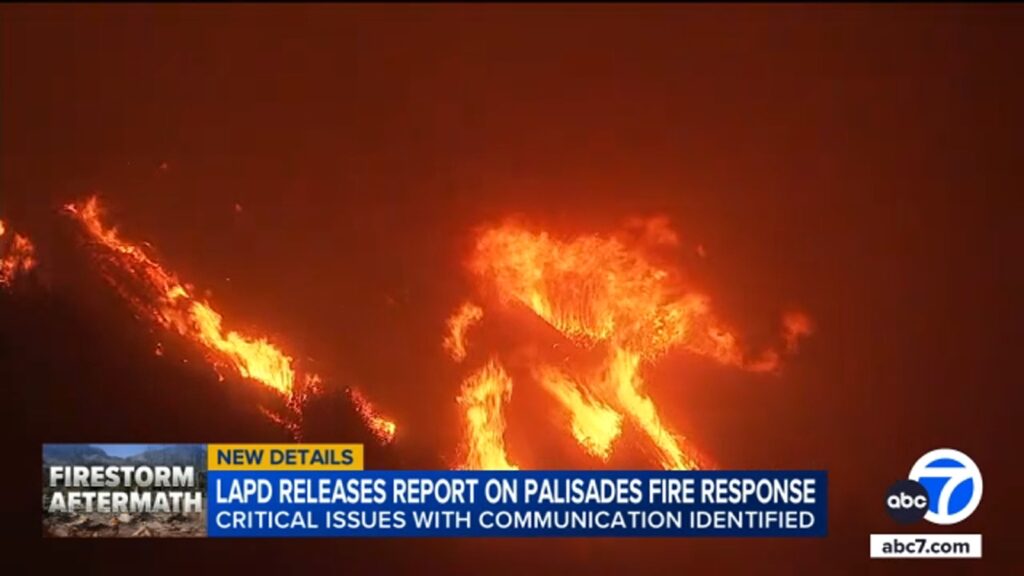
UPDATE: A shocking new report from the Los Angeles Police Department (LAPD) details significant miscommunication and coordination failures during the response to the Palisades Fire in January. The urgent findings, presented at a meeting of the Los Angeles Police Commission on October 3, 2023, underscore the critical need for improved inter-agency communication.
The 92-page after-action report reveals that despite the heroism of LAPD officers, confusion reigned between the LAPD and the Los Angeles Fire Department (LAFD) throughout the crisis. Both agencies operated from the same command post, yet aligning their strategies proved difficult, often resulting in uncertainty over command structure.
The chaos intensified with the deployment of National Guard troops to the fire zone. The report highlights that approximately 700 police officers were involved in the LAPD response, yet crucial movements were not logged, further complicating the situation.
Communication breakdowns were exacerbated by downed radio and cellphone towers in the fire-affected area. Dispatchers were sometimes forced to hand-deliver critical documents, delaying crucial information transfer.
Assistant Chief Michael Rimkunas acknowledged these shortcomings, stating, “The report found that in the initial coordination, on the initial days, there was area for improvement between LAFD and LAPD.”
The implications of these findings are profound, highlighting the urgent need for better strategies and communication frameworks for future emergencies. As California faces an increasingly volatile fire season, these lessons must be heeded to protect lives and property.
The report aims to prompt immediate discussions on how to refine coordination between emergency response teams in Los Angeles. As the situation continues to evolve, authorities emphasize that proactive measures are essential to avoid repeating these pitfalls in future disasters.
Stay tuned for more updates as officials respond to these critical findings and work to implement necessary changes.





